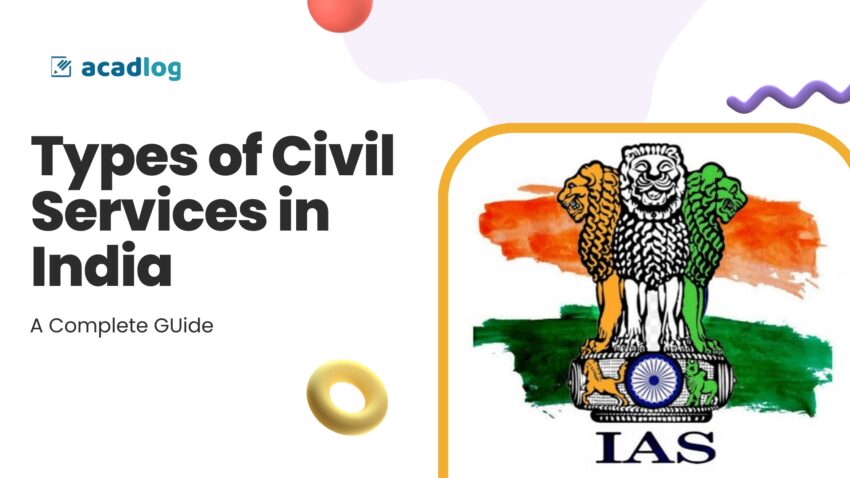Civil services in India are the backbone of the administrative machinery of the country. They are a collection of professional services that constitute the permanent executive branch of the government. As of 2010, there were 6.4 million employees in civil services in India, making it one of the largest such systems globally. This article aims to provide an in-depth look into the types of civil services in India.
All India Services
Indian Administrative Service (IAS)
The IAS is one of the premier services in India. Officers are responsible for policy implementation and administration at both the central and state levels.
Indian Police Service (IPS)
IPS officers are responsible for maintaining law and order, traffic management, and crime prevention. They serve at both central and state levels.
Indian Forest Service (IFS)
IFS officers are responsible for the conservation and management of forests and wildlife in India. They work under the Ministry of Environment, Forest and Climate Change.
Central Civil Services
Central Secretariat Service
This service is primarily involved in policy formulation, analysis, and other secretarial functions. It is one of the largest services in terms of personnel.
Indian Revenue Service (IRS)
IRS officers are responsible for collecting direct and indirect taxes. The service is divided into two branches: Income Tax, and Customs & Excise.
State Civil Services
State Civil Services are specific to each state and are responsible for administration within that particular state. They serve as a feeder service to the All India Services.
Recruitment
Recruitment to these services is conducted by the Union Public Service Commission (UPSC) for All India and Central Services, and by the State Public Service Commissions for State Services.
Constitutional Protection
Article 311 of the Indian Constitution protects civil servants from politically motivated or vindictive actions, ensuring a stable and impartial administrative system.
Key Takeaways
- Diversity of Roles: The types of civil services in India are diverse, catering to various aspects of governance.
- Scale of Operations: With 6.4 million employees as of 2010, the Indian civil service system is one of the largest in the world.
- Constitutional Safeguards: Article 311 provides a safety net against arbitrary dismissals, ensuring a stable governance structure.
Modern Era of Civil Services
The modern era has seen a shift in the roles and responsibilities of civil servants. With the advent of technology, services like e-governance have become increasingly important. According to a 2020 report, India ranks 74th in the United Nations E-Government Development Index, indicating a growing reliance on digital governance.
Guiding Principles
Neutrality
One of the key principles guiding the types of civil services in India is political neutrality. Officers are expected to serve the government of the day without any bias.
Accountability
Civil servants are accountable to the public and are expected to deliver services efficiently. The Right to Information Act of 2005 has further increased transparency.
Integrity
Integrity is a cornerstone in civil services. Officers are expected to perform their duties honestly, without any form of corruption.
Responsibilities
Civil servants are responsible for a wide range of functions, from policy formulation to disaster management. During the COVID-19 pandemic, civil servants played a crucial role in managing healthcare services and distributing vaccines.
Critique of the System
Bureaucratic Inefficiency
One of the major criticisms is the inefficiency and red-tapism that often plague the system. A 2019 study revealed that India ranks 63rd in the Ease of Doing Business Index, partly due to bureaucratic hurdles.
Lack of Specialization
Another critique is the lack of specialization among officers, which can hinder effective policy implementation. This has led to calls for reforms in the recruitment process.
Corruption
Corruption remains a significant issue, despite various measures to combat it. According to Transparency International, India ranks 86th in the Corruption Perceptions Index as of 2021.
Future Prospects
With the government’s focus on reforms and digitalization, the types of civil services in India are expected to undergo significant changes in the coming years. Initiatives like the Digital India program aim to transform the way services are delivered.
Key Takeaways
- Modern Challenges: The types of civil services in India are evolving to meet the challenges of the modern era, such as digital governance.
- Guiding Principles: Neutrality, accountability, and integrity are the pillars of the civil service system.
- Critique and Reforms: While the system has its flaws, efforts are being made to bring about meaningful reforms.
Read more on Acadlog


